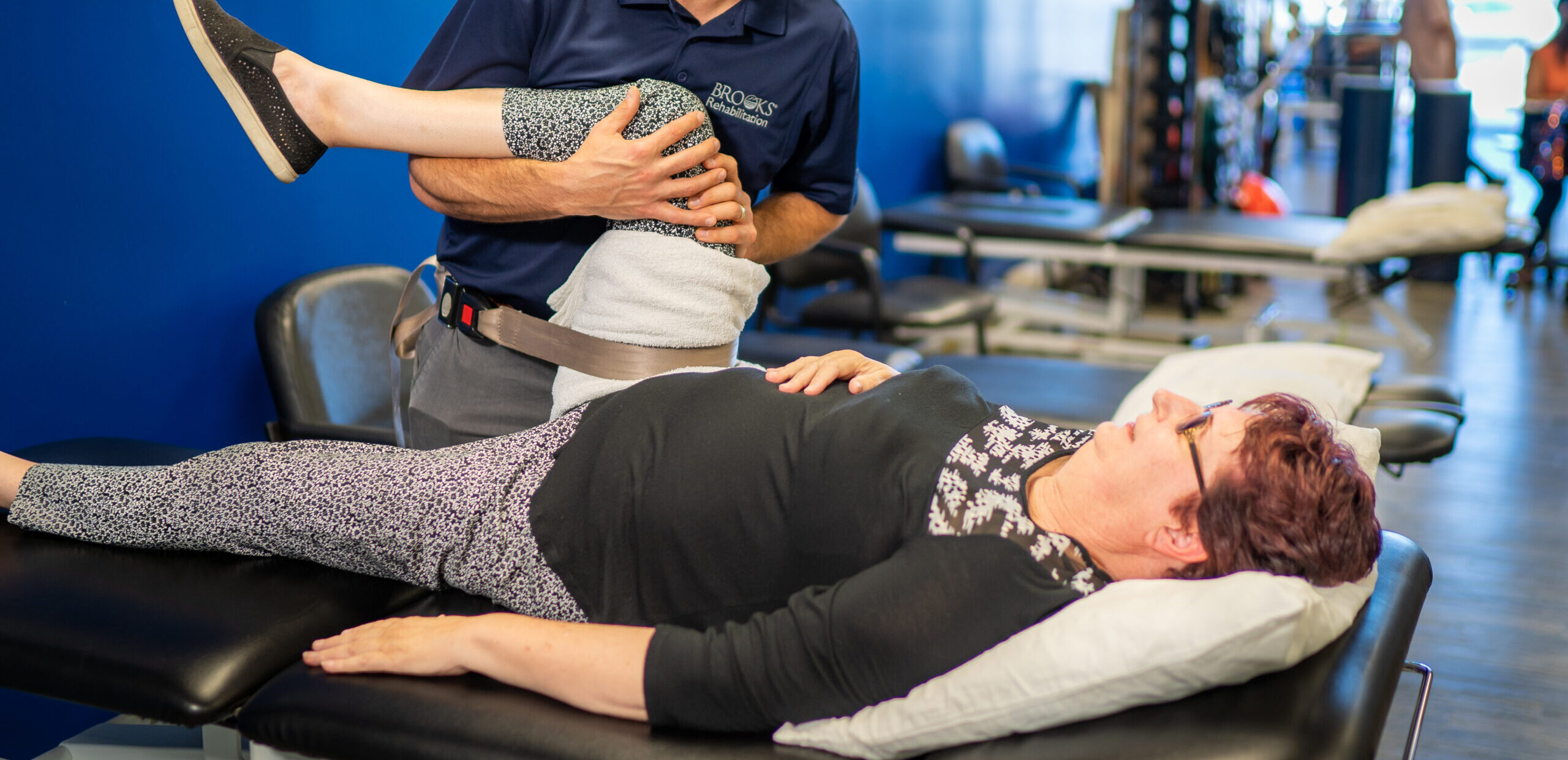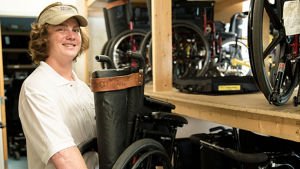What is acute physical therapy?

Back to physical health resource hub
The leaves are changing, Halloween is on its way, and it’s also National Physical Therapy Month, a celebration to showcase the importance of physical therapists and their assistants in the lives of people all over the country across a variety of settings, including the hospital.
What is acute care physical therapy?
Physical therapists (PT) play an important role in acute care, which encompasses the treatment of sudden – typically unexpected – urgent injuries and illnesses in the hospital setting.
Working in acute care as a PT is both exciting and stimulating. The environment is fast-paced, and no two days are the same. You’ll have the opportunity to work closely with a variety of specialized medical professionals and be a part of a team that’s doing life-saving work, which can be an incredibly rewarding experience.
What do acute care PTs do?
- Physical evaluation of the patient which includes identification of body and system impairments
- Development of an individualized comprehensive care plan focused on patient and caregiver goals
- Utilization of evidence-based practice to predict the patient’s expected level of improvement in order to accurately determine goals, discharge needs and rehab prognosis
- Instruction in specific treatments to improve function and promote safe mobility
- Assistive device and adaptive equipment recommendations and training
For other health care professionals, encouraging critically ill patients to be physically active can seem counterintuitive – all everyone sees at first is the “risk.” Yet research shows that the adverse reaction rate for early mobility efforts is between 1% and 3%. The most common reactions are drops in oxygen saturation and blood pressure. With advanced knowledge of anatomy, physiology and neurology, PTs provide tailored head-to-toe evaluations and interventions tailored to the needs of each patient.
What are some common conditions that acute care PTs treat?
The kind of patients we care for will determine a lot about the overall experience as a hospital-based physical therapist. Below are a few conditions that are commonly treated in the acute setting:
- Post-operative: This is the most common kind of patient, and includes those who have just received open-heart surgery, amputation or brain surgery.
- Trauma: Patients may be transferred from the emergency room after a car accident, assault or shooting. They may have multiple complications including traumatic brain injury, spinal cord injury, skeletal injury or shock.
- Infection: Dangerous infections such as sepsis can cause a variety of life-threatening complications and require an extremely sanitary and closely monitored environment to recover.
- Stroke: In addition to post-operative care, stroke patients will need diagnostic imaging and intensive physical, occupational and speech therapy.
- COVID-19: In severe cases, the difficulty breathing becomes so difficult that the patient is unable to properly oxygenate their body, requiring ventilation. Did you know that PTs can safely mobilize vented patients?
- Cancer: Cancer patients may need to be admitted for recovery after intensive chemotherapy, an unexpected infection or resection surgery.
- Joint: Those who have undergone a joint replacement will often require instruction on their new precautions and assistive device.
When celebrating National Physical Therapy Month this month, remember that it is because of people who work in the PT field that so many are able to keep active, stay fit and protect their overall health. It is a great feeling to be able to affect someone’s life in such a positive way.


